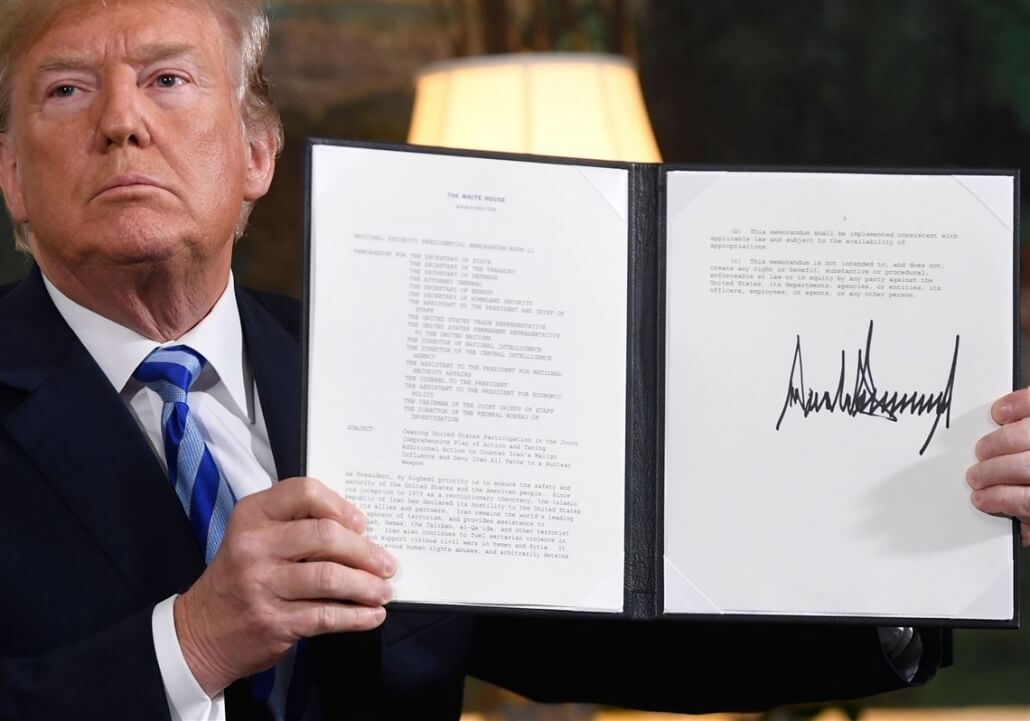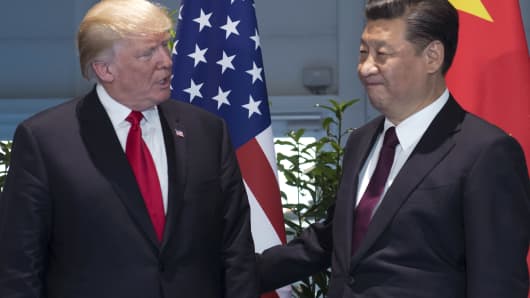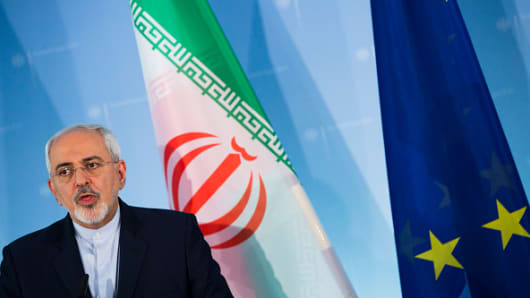Global powers condemn US sanctions against Iran
Several global powers have decried President Donald Trump’s administration for reinstating tough economic sanctions against Iran, while actively calling on businesses to ignore the White House over the coming months.
Despite pleas from key members of the international community, the U.S. re-imposed sanctions targeting the Iranian government’s purchase of U.S. dollars on Tuesday. The measures also impact Tehran’s trade in gold and other precious metals, as well as its automotive industry.
In a tweet posted earlier this week, Trump said: “These are the most biting sanctions ever imposed, and in November they ratchet up to yet another level. Anyone doing business with Iran will NOT be doing business with the United States. I am asking for WORLD PEACE, nothing less!”
Trump warned that unless Iran — which is the world’s fifth-largest oil producer — complies with U.S. demands, Washington will look to impose far tougher measures in early November.
The second batch of potentially more damaging sanctions will target Iran’s port operators, as well as its energy, shipping and shipbuilding industries. Petroleum-related transactions and dealings between foreign financial organizations and the Central Bank of Iran will also be impacted.
U.S. officials have urged allies around the world to cut all oil purchases from the OPEC member to zero by November. The State Department also warned firms that continue to do business with Tehran could risk punishment.
Europe
The re-imposition of strict economic sanctions against Tehran followed Trump’s decision earlier in the year to pull out of the 2015 landmark deal to lift punitive measures in return for curbs on Iran’s nuclear aspirations.
Co-sponsors of the landmark nuclear deal include some of Washington’s closest allies, with Britain, France and Germany — as well as Russia and China — all signatories to the agreement.
Yet, in defiance of Trump’s warning, the European Union responded to the Iran sanctions on Tuesday by calling on companies to disregard threats from Washington.
“If there is one piece of international agreements on nuclear non-proliferation that is delivering, it has to be maintained. We are encouraging small and medium enterprises, in particular, to increase business with and in Iran as part of something (that) for us is a security priority,” Federica Mogherini, the EU’s foreign policy chief, said Tuesday.
China
In Asia, China condemned the measures reinstated against Tehran earlier this week and — in accordance with Europe — urged oil and gas firms to reject calls for them to completely cut-off from Iranian crude.
“China has consistently opposed unilateral sanctions and long-armed jurisdiction,” China’s foreign ministry said, according to a Reuters report. “China’s commercial cooperation with Iran is open and transparent, reasonable, fair and lawful, not violating any United Nations Security Council resolutions.”
Beijing has cultivated close commercial links with Tehran, especially in the energy sector, and is currently the world’s biggest buyer of Iranian crude. The Asian giant told Reuters on Wednesday that it planned to continue to defend its business interests with Iran.
Russia
The Russian foreign ministry website published a statement Tuesday stating that Moscow is “deeply disappointed by U.S. steps to reimpose its national sanctions against Iran,” before adding, “We will do everything necessary in the interests of preserving and fully implementing the SVPD (Iran nuclear deal).”
In a translation provided by different media reports, the ministry added that it was “taking appropriate measures on a national level to protect trade and economic cooperation with Iran,” and that Russia would continue to work with other parties to the agreement to preserve trade with the Middle East nation.
“We believe that this work is in line with the interests of the international community,” it added.
Iran
Iranian Foreign Minister Javad Zarif reportedly said Wednesday that the U.S. is in no position to try to completely cut off Iran’s oil sector.
“If the Americans want to keep this simplistic and impossible idea in their minds they should also know the consequences… They can’t think that Iran won’t export oil and others will export,” Zarif was quoted as saying Wednesday, without specifying what consequences the U.S. could face.
“The Americans have assembled a war room against Iran… We can’t get drawn into a confrontation with America by falling into this war room trap and playing on a battlefield,” he added.
Last month, Iranian President Hassan Rouhani warned Tehran would be prepared to block the Strait of Hormuz if the U.S. attempted to prevent the Islamic Republic’s oil exports.
The strait connects the Persian Gulf to the Arabian Sea and has been described by the U.S. Energy Information Administration as the “world’s most important oil transit chokepoint.”






